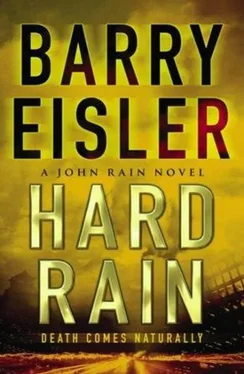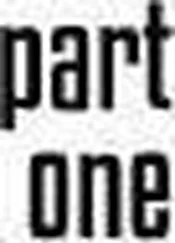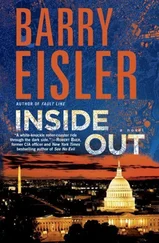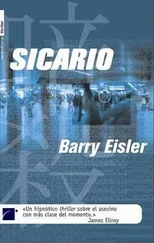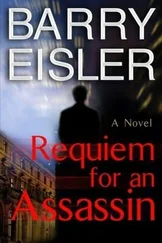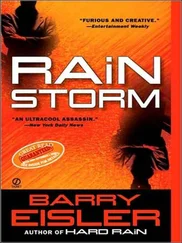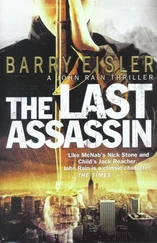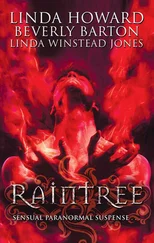She clenched her jaw and looked at me.
Damn, she was tough. I might have known, after seeing the way she handled her nitroglycerin-volatile boss.
“All right,” I said. “You win.”
I popped another uppercut into her midsection, this one hard enough to cause damage. She doubled over with a sharp exhalation of breath. I stepped behind her, took her head in one gloved hand and her chin in the other, and broke her neck. She was dead before she hit the floor.
I’d never done that to a woman before. I thought for a second of some of the things I had said to Naomi about subornment, about what Midori had said about atonement. But other than a detached observation about the relative ease of the maneuver because of the lighter muscle mass, I felt nothing.
“Say hello to Harry,” I said. I picked up her purse to make it look like she’d been the victim of a random robbery, collected the fishing line and tape, and took the stairs to the first floor. I let myself out through the front entrance, keeping my head down to avoid the camera there. I ducked around the corner into the alley, where I pulled off the hat and wig, spat out the false teeth, and rubbed the ash off my face with the damp towel. I pulled off the homeless man’s clothes and the long underwear and changed into what I had bought at the Gap, then shoved everything back into the bag. I ran a mental list of the contents of the bag to ensure I wasn’t leaving anything behind, then double-checked the ground just to be sure. Everything was copacetic. I took a deep breath and strolled back out onto Aoyama-dori.
When I was a few blocks away, I stopped under a streetlight and quickly went through her purse. There was nothing in it of interest.
I walked down Roppongi-dori until I found an appropriate colony of homeless men. I left the bag and the purse close by them and walked on, peeling off and dropping the gloves as I did so. I would get rid of the teeth elsewhere. They had my DNA on them, and weren’t the kind of item that Tokyo’s shifting populations of homeless men would assimilate and thereby sanitize.
Ducking into an alley, I discharged a shot from the canister of pepper spray to confirm that it worked. I decided to keep it. When Murakami learned about Yukiko, I might want a little extra protection.
THE NEXT AFTERNOON I did an SDR that finished at JR Harajuku station. I exited and let the eternal river of hip-hop shoppers, attired in ways that an extraterrestrial would probably find welcoming, carry me onto Takeshita-dori, Tokyo’s teen shopping mecca. Only in Tokyo could the jam-packed bizarrerie of a byway like Takeshita-dori exist side by side with the elegant teahouses and antiques shops of Brahms-no-komichi, and the stark contrast is one of the reasons Harajuku has always been one of my favorite parts of the city.
Tatsu had assured me that Biddle employed no bodyguards, but there’s nothing like independent verification to lower my blood pressure. There were a number of points from which I might approach Jardin de Luseine, and I moved around each of them, probing, imagining where I might position watchers if I were protecting someone in the restaurant. I walked in tightening concentric circles until I was sure that no one was positioned outside. Then I made my way back to Takeshita-dori, where I cut across an alley that ran alongside the restaurant itself.
I spotted him through the enormous plate-glass window on the alley side of the building. He was sitting alone, reading a newspaper, sipping something from a china cup. The same man I had seen in the photograph, elegantly dressed in a single-breasted blue pinstriped suit, a white shirt with a spread collar, and a burgundy rep tie. Overall the impression was fastidious, but not overly so; less American, more British; CEO rather than spymaster.
He was sitting in one of the window seats, with his profile to the alley, and that told me a lot: he was insensitive to his surroundings; he didn’t understand that glass is no deterrent to a sniper, or to an ordinary gunman; he thought like a civilian, not a spy. I watched him silently for a moment, imagining high native intelligence, within which he would take refuge when he found himself inadequate to the demands of the real world; Ivy League schools and possibly a graduate degree, from which he would have learned much about office corridors and nothing of the street; a passionless but adequate marriage to a woman who had borne him the required two or three children while dutifully following him from post to career-building post, hiding her growing sense of loss and inchoate desperation behind cocktail party smiles and repairing with increasing frequency to a refrigerated bottle of Chablis or Chardonnay to beat back the long silences of listless afternoons.
I went inside. The door opened and closed with an audible clack, but Biddle didn’t look up to check on who had entered.
I moved across the dark wood floor, beneath the Art Deco chandeliers, around Victorian tables and chairs, alongside a grand piano. Only when I was actually standing in front of him did he raise his head from his reading. It took him a half-second to recognize me. When he did he recoiled. “What the hell!” he stammered.
I sat across from him. He started to get up. I restrained him with a firm hand on his shoulder.
“Stay seated,” I said quietly. “Keep your hands where I can see them. I’m only here to talk. If I wanted to kill you, you’d be dead already.”
His eyes bulged. “What the hell!” he said again.
“Calm down,” I told him. “You’ve been looking for me. Here I am.”
He exhaled sharply and swallowed. “Sorry,” he said. “I just didn’t expect to see you like this.”
I waited.
“All right,” he said, after a moment. “The first thing I should mention is that this has nothing to do with William Holtzer.”
I kept waiting.
“I mean, he didn’t have many supporters. He isn’t missed.”
I doubted Holtzer’s own family would miss him. I waited some more.
“So what we want, the reason we’ve been looking for you,” he went on, “is, we want you to, ah, interfere with someone’s activities.”
A new euphemism , I thought. So exciting .
“Who?” I asked, to let him know that he was finally on the right track.
“Well, just a second. Before we talk about that, I need to know, are you interested?”
I looked at him. “Mr. Biddle, I’m sure you know that I’m selective about whose activities I’ll ‘interfere’ with. So without knowing who, I couldn’t tell you whether I’d be interested or not.”
“It’s a man. A principal.”
I nodded. “Good.”
“ ‘Good’ meaning, you’re interested?”
“Meaning you haven’t made me uninterested, so far.”
He nodded. “You know the person we’re talking about. You met him recently, when he was following an acquaintance of yours.”
Only long-practiced discretion prevented me from showing my surprise. “Tell me,” I said.
“Kanezaki.”
“Why?”
He frowned. “What do you mean, ‘why’?”
“Let’s just say that my unhappy history with your organization necessitates higher than usual levels of disclosure.”
“I’m sorry, I can’t tell you more than I have already.”
“I’m sorry, you’ll have to.”
“Or you won’t take the job?”
“Or I will take your life.”
He blanched, but other than that kept his composure. “I don’t really think this conversation calls for threats,” he said. “We’re discussing a business proposition.”
“ ‘Threats,” ’ I said, my tone thoughtful. “I’ve survived for a long time by identifying and preemptively eliminating ‘threats.’ So here’s my business proposition to you. Convince me that you’re not a ‘threat,’ and I won’t eliminate you.”
Читать дальше
